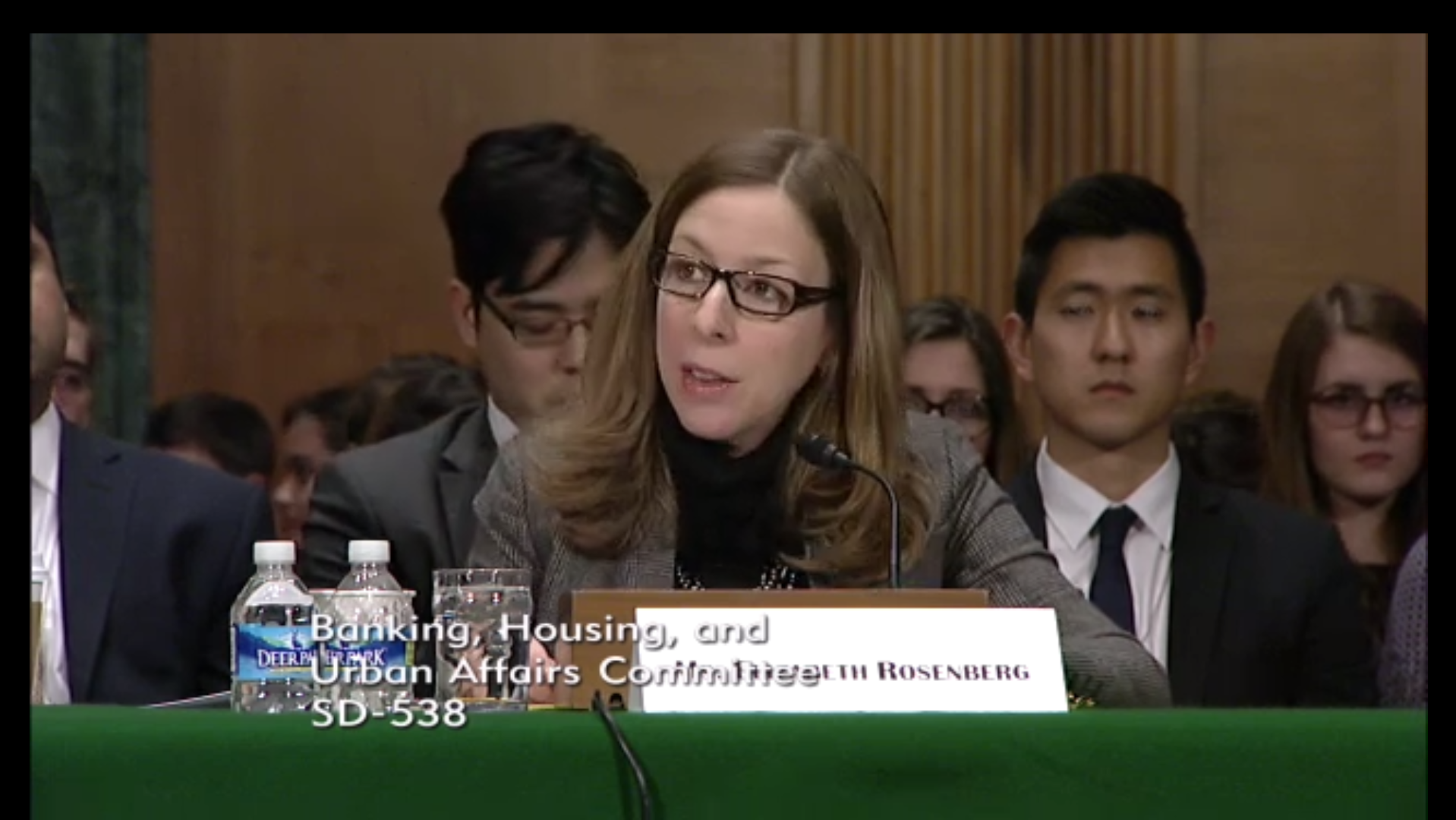
March 15, 2017
Elizabeth Rosenberg before the Senate Committee on Banking, Housing, and Urban Affairs
Assessing U.S. Sanctions on Russia: Next Steps
Chairman Crapo, Ranking Member Brown, and distinguished members of the Committee, thank you for the opportunity to testify today on the topic of U.S. sanctions on Russia.
The sanctions that the United States and the European Union imposed on Russian entities and individuals over the last several years have been among the most innovative, targeted, and forceful examples of modern coercive economic statecraft. Designed to respond to Russia’s illegal annexation of Crimea and aggression in Eastern Ukraine, the most powerful of these sanctions targeted Russia’s financial services, energy, and arms sectors, as well as individuals close to President Vladimir Putin. These multilateral measures delivered a powerful message of transatlantic unity regarding Russia’s breach of Ukrainian sovereignty and cultivated substantial economic leverage for the West. Their impact and leverage were significantly augmented by the oil price collapse in 2014 and Russia’s resulting loss of hard currency to cope with the sanctions vice. Transatlantic leaders have linked implementation of the Minsk agreements, including a cessation of hostilities, withdrawal of heavy weapons from the front lines, restoration of Ukraine’s borders, sovereignty, and political reform, to removal of sanctions. Sanctions linked to Crimea can be removed when Russia returns control over the peninsula to Ukraine. Additional recent U.S. and EU sanctions have exposed Russia’s human rights record, its destabilizing involvement in the conflict in Syria, as well as its insidious cyber intrusions into U.S. institutions and political processes.
The economic force of these sanctions has diminished over time as investors have adapted their business operations, the Russian economy has stabilized, and U.S. and EU leaders have not kept up the pressure of sanctions. Now, political signals from the new U.S. administration, as well as from nationalist political movements in Europe that could impact upcoming elections and leadership in France and Germany, that a warmer relationship with Russia may be forthcoming indicate to the private sector that sanctions may present event less of an impediment going forward. The U.S. Congress is in the position to enhance pressure through new sanctions in response to Russia’s increasing aggression in Eastern Ukraine, as well as its deeply concerning cyber interference in U.S. institutions and electoral processes. Congress can offer leadership on the direction for an updated economic response, and set the tone for appropriate diplomatic overtures to both European allies and Russian counterparts.
The full testimony is available online.
More from CNAS
-
The EU Can’t Avoid U.S. Sanctions on Iran
Commentary
Late last month, the European Union and China announced that they intended to set up a special global payments system to allow companies to continue to trade with Iran despite...
By Elizabeth Rosenberg
-
Want to really hit Russia’s oligarchs? Shine a light on their money
Commentary
On Tuesday the U.S. intelligence community testified to the Senate that Russia would continue to try to interfere in U.S. elections. The testimony once again drew attention to...
By Neil Bhatiya
-
Trump must send Russia powerful message through tougher actions
Commentary
The Trump administration took several actions last week to implement U.S. sanctions on Russia that Congress passed last year. However, while the Trump administration’s actions...
By Peter Harrell & Elizabeth Rosenberg
-
CNAS Commentary: Trump Administration Implementation of U.S. Sanctions on Russia and Next Steps in Russia Policy
Commentary
On January 29, the Trump administration published a list of Russian oligarchs and senior Russian government officials and issued a public statement describing diplomatic effor...
By Peter Harrell & Elizabeth Rosenberg



